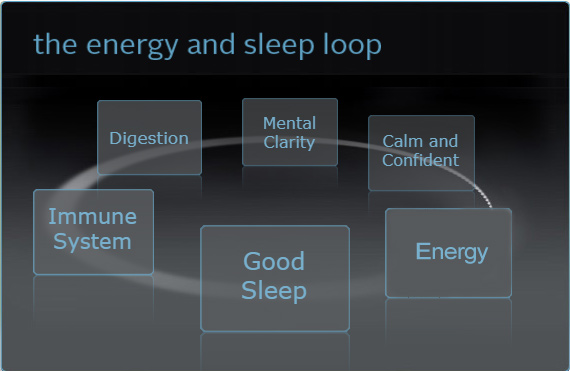
digestion
As well as delivering nutrients to the cells of the body via the bloodstream, the digestive system has a number of other important functions.
The surface area of the digestive tract is roughly the same size as a football field. It has a large part to play in the immune system, as it prevents invading organisms and toxins entering the blood and lymph.
During activation of the fight or flight response blood is redirected from the digestive tract to the skeletal muscles (up to a 12x increase). Continued blood redirection can cause Irritable Bowel Syndrome and subsequent food intolerances. Cortisol – a fight or flight hormone - also leads to increased gastric acid, which is a factor in the development of stomach ulcers.
Returning balance to the Automatic Nervous System allows blood to return to the digestive system. It can now calmly go about its work, providing essential nutrition, detoxification, and immune system function.
mental clarity
The brain consumes a large amount of energy in proportion to its volume: 20-25% of our base metabolism. Most of the brain's energy consumption goes into sustaining the electric charge of neurons, i.e. clear, creative thinking and the unconscious controls of the body.
The brain's fuel is blood sugar.
When the fight or flight response is activated, blood sugar is spent on energy for muscles; rational, clear thought is not required. Restoring balance to the automatic nervous system frees up the supply of fuel for the brain and alert, calm and clear thinking can return.
calm and confident
On the Core Resilience Training course you learn how your automatic unconscious responses, to events in our home and work life, effect us physically and emotionally.
The Core Resilience Training is about having a tool to change your automated responses, to a response you would prefer instead. For example, feeling confident and relaxed about an upcoming meeting, or an exam at school.
The commonly taught techniques for stress ‘management’, e.g. CBT and breathing, imply that stress is something that is going to happen to you and you have no choice. That you learn how to get calm again, requiring time and privacy.
However, one way to use the Core Resilience Training is to retrain ourselves not to get stressed in the first place. Replacing unwanted emotional responses stops unnecessary activation of the fight or flight hormones, and brings the associated physical benefits described on this page.
energy
Often, we think that we have a lot less energy than we should and therefore need to ration it. We believe that our daily supply is a finite amount, a bit like a battery.
However, through digestion we continually produce a supply of new blood sugar for energy. It’s just that every time we let a fight or flight response happen, we wastefully burn up blood sugar, putting leaks in the battery.
When we learn to plug those leaks, not only do we have more energy available, the battery can recharge and stay topped up.
good sleep
The type of sleep we enjoy is more important than the mythical 8 hours. Delta (deep or slow wave) sleep is dependent on sleep promoting hormones that are supressed by the fight or flight response - which is designed to keep us alert to potential threats.
During Delta sleep we repair and restore. Our immune system is activated: removing toxins, repairing damaged cells and fighting infections. Our heart and blood pressure get a much-needed rest. It even helps us burn fat and regulate weight.
We need Delta sleep to repair neurons for good mood, creative thinking and an energetic day. This in turn makes us less likely to react with the fight or flight response, which then promotes more Delta sleep the next night.
immune system
The immune system fights infections and removes foreign matter, including toxic waste from cellular activity (endotoxins). This supports our body’s natural process of healing, regeneration and restoration.
Fight or flight hormones can lead to immunodeficiency i.e. a depleted ability to remove toxins and fight infections, or contribute to an autoimmunity where the immune system attacks the body’s healthy cells (for example Crohns disease, Lupus, Psoriasis, Eczema).
Switching off fight or flight hormones allows our immune system to rebalance and do its job properly. The resulting activity results in steady energy, avoiding colds and flu, healing allergies and avoiding disease.
The automatic nervous system
The Automatic Nervous System (ANS) is in continual push and pull between the extremes of the Sympathetic Nervous System (SNS) ‘fight or flight’, and the Parasympathetic Nervous System (PNS) ‘rest and digest’. Restoring from fight or flight mode to a balanced state, puts us on a positive feedback cycle:
Digestion is promoted and we have more nutrition. Plus, we no longer burn blood sugar wastefully, so our battery can replenish and stay topped up. Also our brain is in calm and rational mode and so looks for, filters for, good things rather than ‘threats’. This becomes self-fulfilling, with continued good sleep, topped up energy and a healthy immune system.
